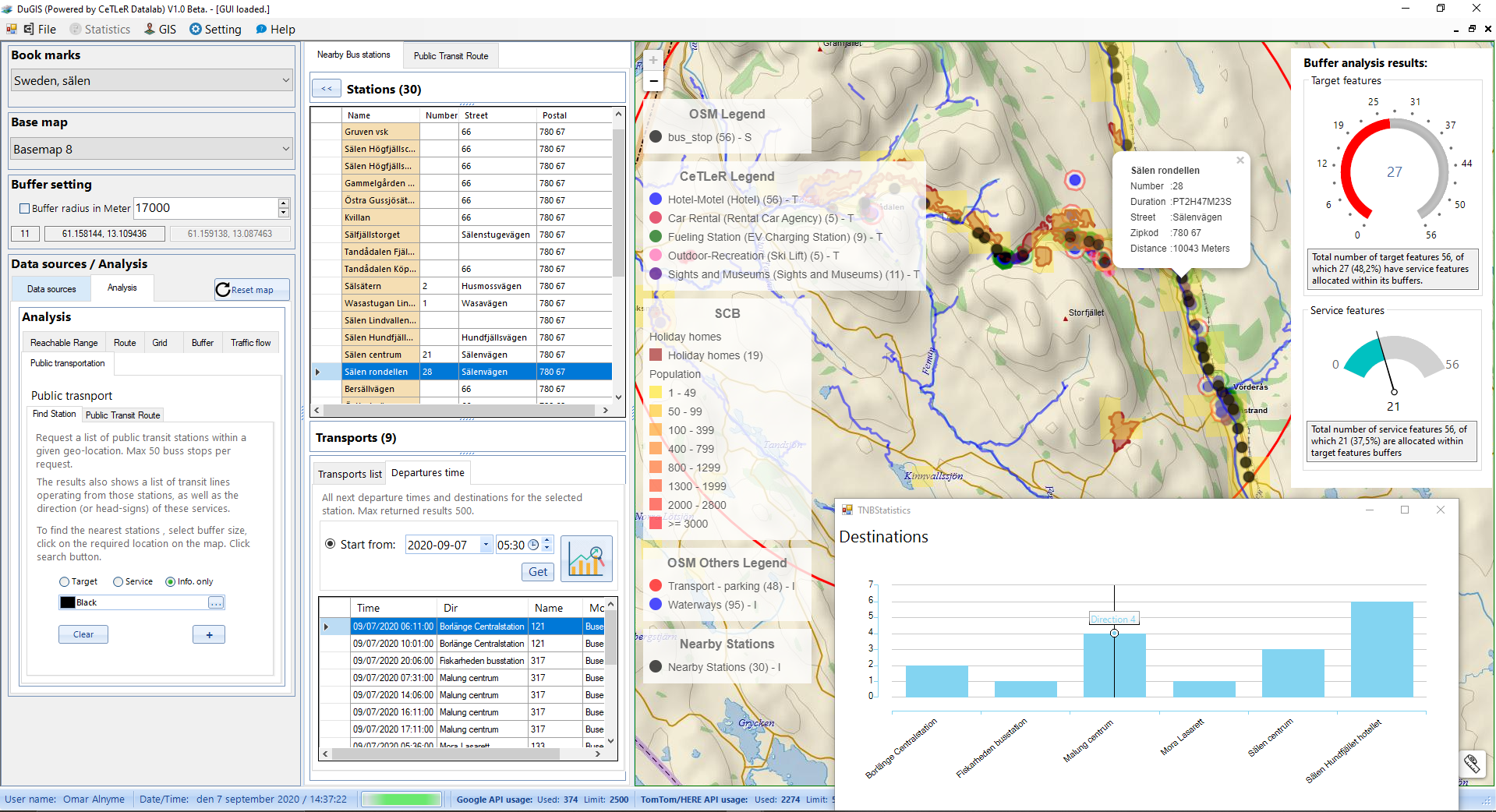
Research Profile: Complex systems - micro data analysis.
The present project aims to further develop micro-based decision support to be used by public planners for more effective and more sustainable decisions regarding infrastructure investment in connection with destination development. The aim of the project proposal is primarily to increase the understanding of the scope of tourism at local and regional level. The project's further developed model enables better forecasts of local and regional effects of tourism, which contributes to increased
- Category: Research/Projects
- Hits: 736
Research Profile: Complex systems - micro data analysis.
Within the project MARA (Mobility and Accessibility in Rural Areas - New approaches for developing mobility concepts in remote areas), researchers and practitioners will jointly study the needs and challenges that exist in rural tourism destinations.
New solutions and business models will be developed for sustainable mobility, linked to both locals and tourists' needs. The project is an international project with 12 partners from nine countries in the Baltic Sea region.
- Category: Research/Projects
- Hits: 881
The purpose of the study is to provide an analysis of the prediction model for Capital Bikeshare system in what regards the net count of bikes rented per day, from nine independent variables. A central point of the work is to apply the linear regression method for identifying the daily net count for rented bikes at Capital Bikeshare. The core data set is related to the two-year historical log corresponding to years 2011 and 2012 from Capital Bikeshare system, Washington D.C., USA which is publicly available on http://capitalbikeshare.com. We aggregated the data on daily bases and then extracted and added the corresponding weather and seasonal information. Weather information are extracted from http://www.freemeteo.com.
- Category: Research/Projects
- Hits: 698
Research Profile: Complex systems - micro data analysis
The project aims to investigate the conditions for business models that can solve the problem of financing the operation of recreational trails. Based on the concept of sustainable destination development, various forms of "nudging" will be studied and tested in field studies in areas such as MTB, cross-country skiing and skating.
- Category: Research/Projects
- Hits: 664
The purpose of the study is to provide an analysis of the prediction model for Cycle Power Plant(CCPP) in what regards the net hourly electrical energy output from four independent variables. A central point of the work is to apply the linear regression method for identifying the hourly electric energy output at Combined Cycle Power Plant(CCPP). Initial data set was obtained from UCI Machine Learning Repository and consisted of 9,567 rows and 5 columns, organized as follows: Ambient Temperature (AT), Ambient Pressure (AP), Relative Humidity (RH), Exhaust Vacuum (EV), and net hourly electrical energy output (PE) of the plant.
- Category: Research/Projects
- Hits: 1022
Page 1 of 2
